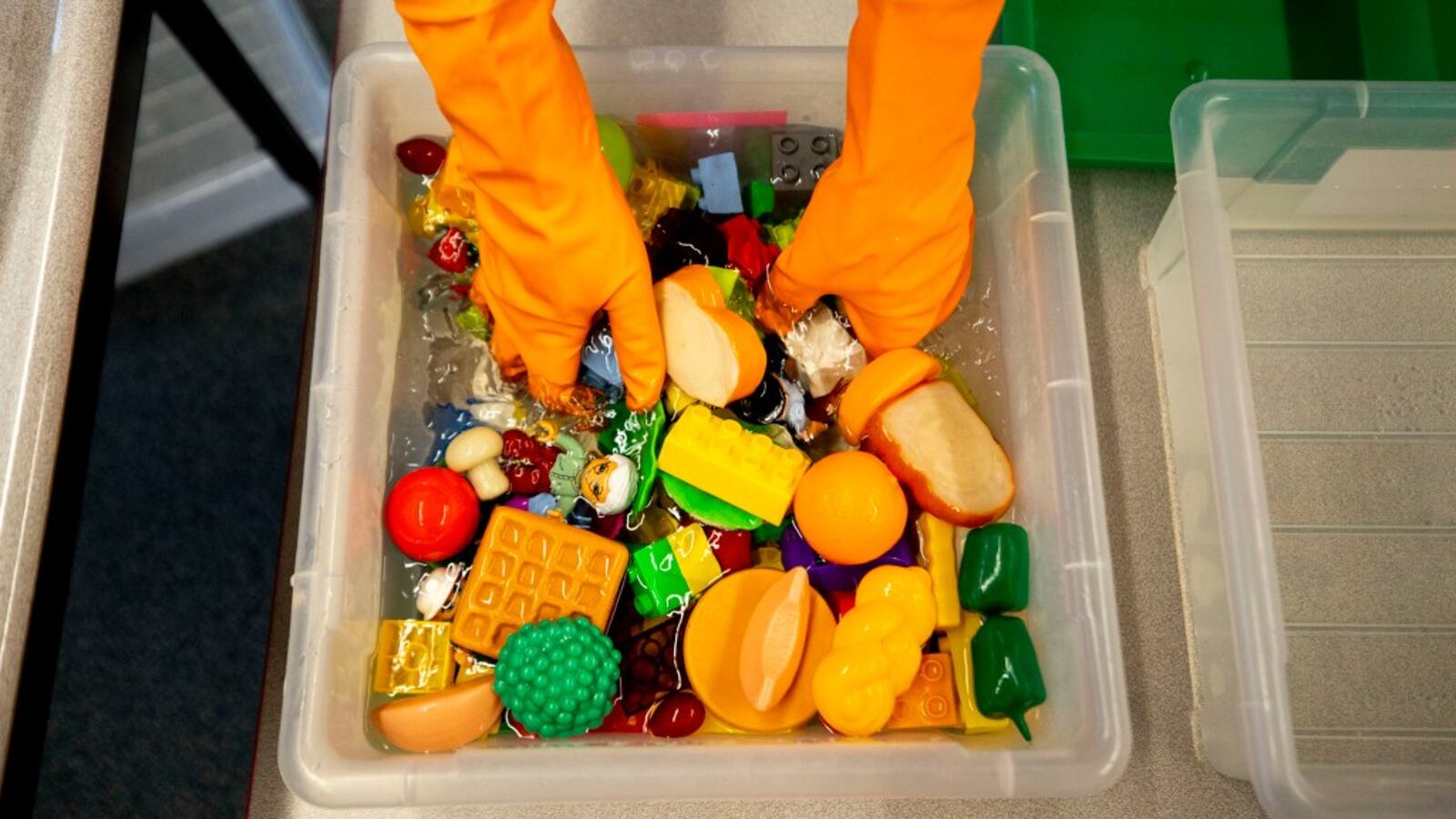In classrooms in Chicago and across the state, educators have become explainers-in-chief for students struggling to make sense of the coronavirus outbreak — and the school closure dominoes it set off.
With statewide school closures starting Tuesday, and earlier closures in some Illinois districts, parents are taking over the role of helping students sift through the onslaught of coronavirus news and misinformation. How teachers have navigated these sometimes difficult conversations may prove instructive for housebound families.
Teachers say they have fielded a flurry of questions and tried to allay anxieties. They have reinforced prevention advice and addressed concerns about the bullying of Asian-American students. In the days leading up to Gov. J.B. Pritzker’s Friday decision to close all Illinois schools, educators waded into the increasingly heated debate about school closures.
Some teachers said the outbreak offered students a valuable education in empathy and the importance of looking out for others, including those most vulnerable to the pandemic.
“In my classroom we got to explore how as a society, we tend to be pretty self-centered,” said Charity Freeman, a science teacher at Chicago’s Lane Tech College Prep High School. “It takes a crisis like this to realize how interconnected we are.”
Many educators have been hungry for guidance, said Katherine Cowan of the National Association of School Psychologists, whose organization compiled advice on the issue for both teachers and families.
Cowan said teachers and parents should stress that potentially overwhelming steps such as mass school closures are a positive move to rein in the outbreak, not “signs of the ending of things.”
“The No. 1 priority for all adults right now is to reinforce kids’ sense of security and safety rather than letting their anxieties be the leading edge,” she said.
Some Illinois teachers say it was important to carve out time to address the coronavirus outbreak head on, before a pent-up student need to hash out the topic became a distraction.
Alex Parker, a fourth-grade teacher at Cossitt Avenue Elementary School in the La Grange district, shied away from the topic earlier last week. But by Thursday it became obvious students were preoccupied by it.
“I needed to clear the air with them so they’d be available for learning,” he said. Once they tackled the virus in their morning meeting, Parker said, “I was blown away by how calm and informed about it they were.”
Freeman held a “classroom culture day” Thursday — the same kind of open forum she hosted on the eve of the 11-day teacher strike that shut down Chicago schools last fall and at the outset of the trial for the police officer who shot teenager Laquan McDonald. Students discussed whether the media was hyping up the virus threat, or whether President Trump was understating it. They talked about cancelled spring break trips, college visits, and this week’s I-Day, a major event international students and clubs work for months to prepare.
Younger children also are eager to talk through what they are hearing about the outbreak. Jared Hennen, an early childhood education specialist at Chicago Public Schools who works with administrators and preschool teachers, said preschoolers are acutely aware that something big is happening.
“Some of the anxiety and fear is trickling down,” he said. “They are showing up and saying that someone coughed on them, and they’re worried they’re going to die.”
The teachers he advises have been taking great care to help children feel safe while also trying to encourage youngsters to stay at a distance, he said. Many were singing songs about hand-washing with their classes and reading books that explain what germs are — activities families can replicate at home.
In Freeman’s classroom, the issue of taking precautions came up as well. Each student shared the song they use to ensure they are washing their hands long enough, from the ABCs to Shakira. At a selective enrollment school with a hard-charging atmosphere, she said, the message that it’s important to stay home when sick — and it’s OK to stay home because of coronavirus anxieties — took some reinforcing.
In many classrooms, discussions of the outbreak have been an opportunity for students to empathize with peers who live with elderly grandparents or siblings with compromised immune systems. Well-publicized incidents of bullying targeting Asian-American students have also come up. Freeman said she has made a point to check in with her Asian students regularly and challenged all students to take a stance against bullying.
Teachers also have fielded students’ questions and concerns about closing schools or keeping them open. Anthony Cappetta, a Chicago high school math teacher, said earlier last week many of his students were wondering why the city’s schools remained open. Some were becoming increasingly anxious, pointing to district guidance to cancel gatherings of more than 50 students.
In advance of Pritzker’s decision to issue a statewide school closure mandate, Shayla Ewing, a high school English and drama teacher at Pekin Community High School, said her students’ take on the issue of school closures was more mixed. More than 40 percent of her district’s students are low-income. Some rely on the district’s Dragon’s Closet, a food pantry for students and their families.
Some students see a coronavirus-imposed school closure as a kind of snow day, “where you get very excited because you don’t have to come to school and it’s this novel event.”
But, she said, “I have other students who a school cancellation is kind of scary and very anxiety inducing for them because of the services and support that they receive here.”
Cassie Walker Burke, Yana Kuchinoff and Samantha Smylie contributed to this report.


